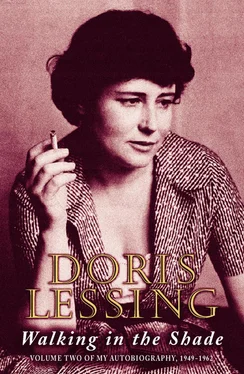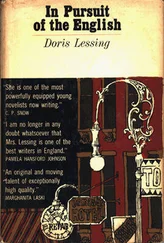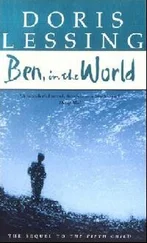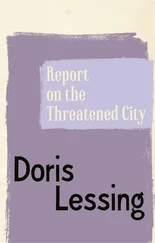Another ‘duty’ I undertook at Joan’s behest was the Sheffield Peace Conference. My job was to go around to houses and hand out leaflets, extolling this festival. I was met at every door with a sullen, cold rejection. The newspapers were saying that the festival was Soviet inspired and financed – and of course it was, but we indignantly denied it and believed our denials. It was a truly nasty experience, perhaps the worst of my revolutionary duties. It was cold, it was grey, no one could describe Sheffield as beautiful, and I had not yet experienced the full blast of British citizens’ hostility to anything communist. *
With Jack I went on two trips to Paris. The little story ‘Wine’ sums up one. We sat in a cafe on the Boulevard St-Germain and watched mobs of students surge shouting past, overturning cars. What was their grievance? Overturning cars is a peculiarly French means of self-expression: Jack had seen the same thing before the war, and I saw it again on a much later visit.
Another incident, the same trip, another cafe: We are sitting on the pavement, drinking coffee. Towards us comes, or sweeps, a wonderfully dressed woman, with her little dog. She is a poule, luxurious, perfect, and no, you don’t see prostitutes looking like that in Paris now. Jack is watching her, full of regret and admiration. He says to me in a low voice, ‘God, just look, only the French …’ Coming level with us, she pauses long enough to stare with contempt at Jack and say, ‘ Vous êtes très mal élevé, monsieur.’ You are very ill-bred, sir. Or, You are a boor. And she sweeps past.
‘But why present yourself like that if you don’t want to be noticed?’ says Jack. (This is surely a question of much wider relevance.) ‘But if one did have the money for a woman like that, would one dare to touch her? I might upset her hairdo.’
On the second visit, we were in a dark cellar-like room, where a reverent audience, all French, watched a pale woman in a long black dress with a high collar, unmade up except for tragic black-rimmed eyes, sing ‘Je ne regrette rien’ and other songs that now seem the essence of that time. (This style would shortly become the fashion.) What it sounded like was a defiant lament for the war, for the Occupation. On the streets of Paris then you kept coming on a pile of wreaths, or bunches of flowers on a pavement, under bullet holes, and a notice: Such and such young men were shot here by the Germans. And you stopped, too, in an anguish of fellow feeling, not unpoisoned by a pleasurable relish in the drama of it.
And we went to the theatre, to see Brecht’s company, The Berliner Ensemble, put on Mother Courage. No German company had yet dared to put a play on in Paris. Jack said he thought there would be a riot: Germans so soon; surely that was too much of a risk; but we should go. It would be a historical occasion. After all, it was Brecht. The first night: the theatre was packed, people standing, and outside there were too many policemen. Things did not go smoothly. There had been time only for an inadequate rehearsal. That story of war, so apt for the time and place, unfolded in silence. No one stirred. There was a hitch with the props, and still no one moved. No interval, because everything was dragging on so late. Soon the silence became unbearable: Did it mean they hated it? that the audience would go rioting onto the stage for some sort of reprisal or revenge? When the play ended, with the words ‘Take me with you, take me with you,’ and the disreputable old woman, stripped of everything, again tried to follow the army, there was something like a groan from the French. Silence, silence, no one moved, it went on – and then the audience were on their feet, roaring, shouting, applauding, weeping, embracing, and the actors stood on the stage and wept. It all went on for a good twenty minutes. About halfway through, that demonstration stopped being spontaneous and became Europe conscious of itself, defeated and disgraced Germany crying out to Europe, Take me with you, take me with you.
I’ve never had an experience like that in the theatre, and it taught me once and for all that a play can have its perfect occasion, as if it had been written for that performance alone. I’ve seen other productions of Mother Courage since.
Later the Canadian writer Ted Allan told me that when Brecht was a refugee in California, he was baby-sitting for the Allans. He asked Ted to read the just completed Mother Courage, and Ted did, and told Brecht it was promising but needed this and that. Helene Weigel was indignant. ‘It’s a masterpiece,’ she said. Ted used to tell this story against himself, polishing it, as befits a real storyteller. His criticisms of Brecht became more crass, a parody of Hollywood film-makers. ‘Get rid of that old bitch. You’ve got to sex it up. You need a babe there. I’ve got it – how about a nun. No, a novice, real young. Let’s see … Lana Turner … Vivien Leigh …’
One trip with Jack was to Spain for a month. This was our longest yet. My mother stayed with Peter for part of it, Joan had him for a week, he was with the Eichners for the rest. We had very little money. Jack was not a senior doctor, and he had a family to keep. Could we each manage twenty-five pounds? The trip, with expenses for the car, travel, cost us fifty pounds. We ate bread and sausage and green peppers and tomatoes and grapes. I can’t smell green peppers that still have the heat of the sun in them without being encompassed by memories of that trip. As you crossed the frontier from France, it was to go back into the nineteenth century. This was before tourism started. As we drove into the towns, like Salamanca, Avila, Burgos, crowds pressed forward to see the foreigners. Ragged boys competed to guard the car: sixpence for a day or a night. When we did actually eat in a cheap restaurant, hungry children pressed their faces against the glass. For Jack, we were driving through ghostly memories of the Spanish Civil War: he had lived, in his imagination, through every stage of every battle. He had suffered because of the betrayal of the elected Spanish government by Britain and France: for him and people like him, that was when World War II had begun. Now he was suffering over the hungry children, remembering his own childhood. He was angry to see the streets full of black-robed fat priests and the police in their black uniforms, with their guns. Spain was so poor then it broke your heart, just like Ireland.
And yet … We slept wrapped in blankets out in a field, in the open because of the stars. One morning, already hot, though the sun was just rising, we sat up in our blankets to see two tall dark men on tall black horses, each wearing a red blanket like a serape, riding past us and away across the fields, the hot blue sky behind them. They lifted their hands in greeting, unsmiling.
We ate our bread and olives and drank dark-red wine under olive trees or waited out the extreme heat of midday in some little church, where I had to be sure my arms were covered, and my head too.
We went to a bullfight, where Jack wept because of the six sacrificed bulls. He was muttering, Kill him, kill him, to the bulls.
In Madrid beggar women sat on the pavements with their feet in the gutters, and we gave them our cakes and ordered more for them.
We felt in the Alhambra that this was our place – the Alhambra affects people strongly: they hate it or adore it.
We quarrelled violently, and often. It is my belief and my experience that energetic and frequent sex breeds sudden storms of antagonism. Tolstoy wrote about this. So did D. H. Lawrence. Why should this be? We made love when we stopped the car in open and empty country, in dry ditches, in forests, in vineyards, in olive groves. And quarrelled. He was jealous. This was absurd, because I loved him. In a town in Murcia, where it was so hot we simply stopped for a whole day to sit in a cafe, in the shade if not the cool, he was convinced I was making eyes at a handsome Spaniard. This quarrel was so terrible that we went to a hotel for the night, because Jack, the doctor, said that our diet and lack of sleep was getting to us.
Читать дальше












